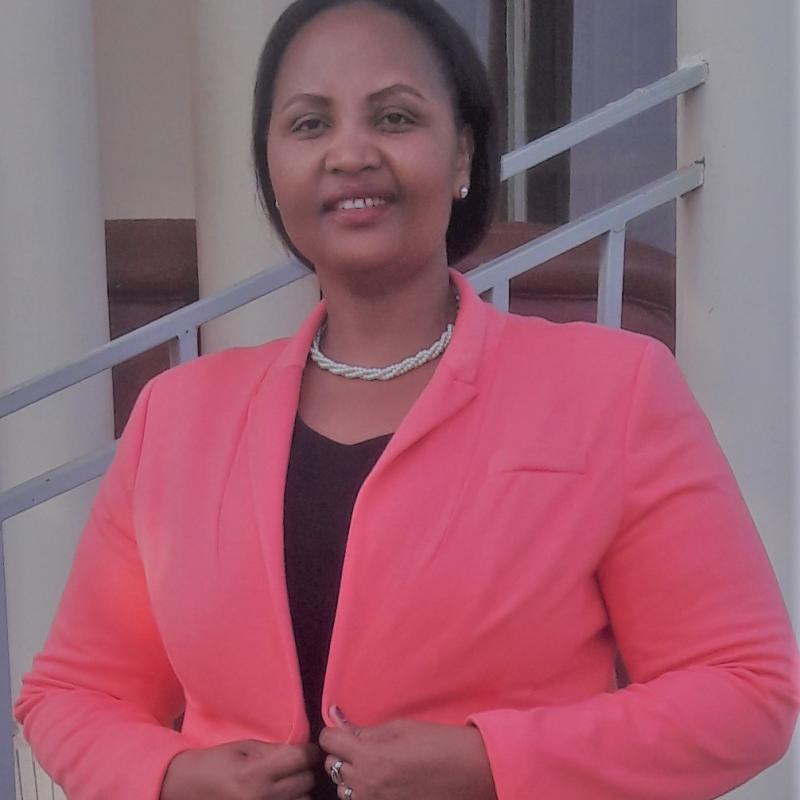Judith has over ten years’ experience in Program Management, Monitoring and Evaluation with special attention to Results. Eight (8) years of experience in the field of Capacity Development, Institutional Building, performance management, Financial Management, leadership, Gender Equality and Women Empowerment. She holds a Master of Business Administration (MBA) from the University of Central Lancashire in UK and a Bachelor of Business Administration (BBA) of Makerere University in Uganda. She has worked with Public Sector, Private Sector, the United Nations and Civil Society Organizations as well as with several Development Partners in Rwanda in different capacities at both technical and leadership levels. Judith is very passionate about empowering women and girls and has led and evaluated various programs aimed Accelerating the Economic Empowerment of Women in Rwanda.
Judith is certified in ; Project Management (Prince2) from UK, Performance Management (CPT) from International Society for Performance Improvement (ISPI) in USA, International Program for Evaluation Training (IPDET) from Carleton University Canada as well as Bullet Proof Leadership training with Crestcom International. She has worked in Uganda, UK and Rwanda which gives her capacity to deal with diversity. Judith has served as a board member on several Boards at a more strategic level, across public, private and Civil Society Organizations. Some of these include; serving as a vice Chairperson BoD at Forum for Africa Women Educationalists (FAWE) Rwanda for 3 years and is Vice President and Founder member for Rwanda Monitoring & Evaluation Society (RMES) among others.

Judith Kaitesi Katabarwa
Founder member Rwanda Monitoring & Evaluation OrganizationDear EvalForward members,
Thank you indeed for your participation in the just concluded discussion on disability inclusion in evaluation. A special thanks to members who shared insights, made comments, or provided useful materials for further reading on the topic and to the EvalForward team for a great coordination always.
From the contributions and discussions, it is evident that the concept of inclusion of people with disability and other marginalized groups in evaluations is important, but still new or rather is given low attention.
Several limitations to inclusion exist, for example, lack of appropriate communication strategy, lack of inclusive tools and appropriate approaches, and limited awareness creation are some of the barriers to widening the inclusion gap. Evaluators ought to bring everyone on board, it is an opportunity to be heard, People with disability should be entitled to every benefit in support of human diversity in society and in the development process, most importantly inclusion needs to go beyond supporting people with disabilities to involving them in the actual practice of evaluations. Disability comes in so many forms and needs different approaches, including in evaluation, requiring capacity building of project/program teams and M&E staff, to better support inclusion of people with disabilities in evaluations.
Very Best,
Judith
Judith Kaitesi Katabarwa
Founder member Rwanda Monitoring & Evaluation OrganizationDear Umi,
Thank you indeed for sharing these useful materials on disability inclusion in M&E, the Capacity Building modules on disability inclusion will definitely contribute to the existing body of knowledge and the gaps that we look to close in this area.
Encouraging EvalForward colleagues to make reference.
Looking forward to more contributions to this topic.
Thank you,
Judith